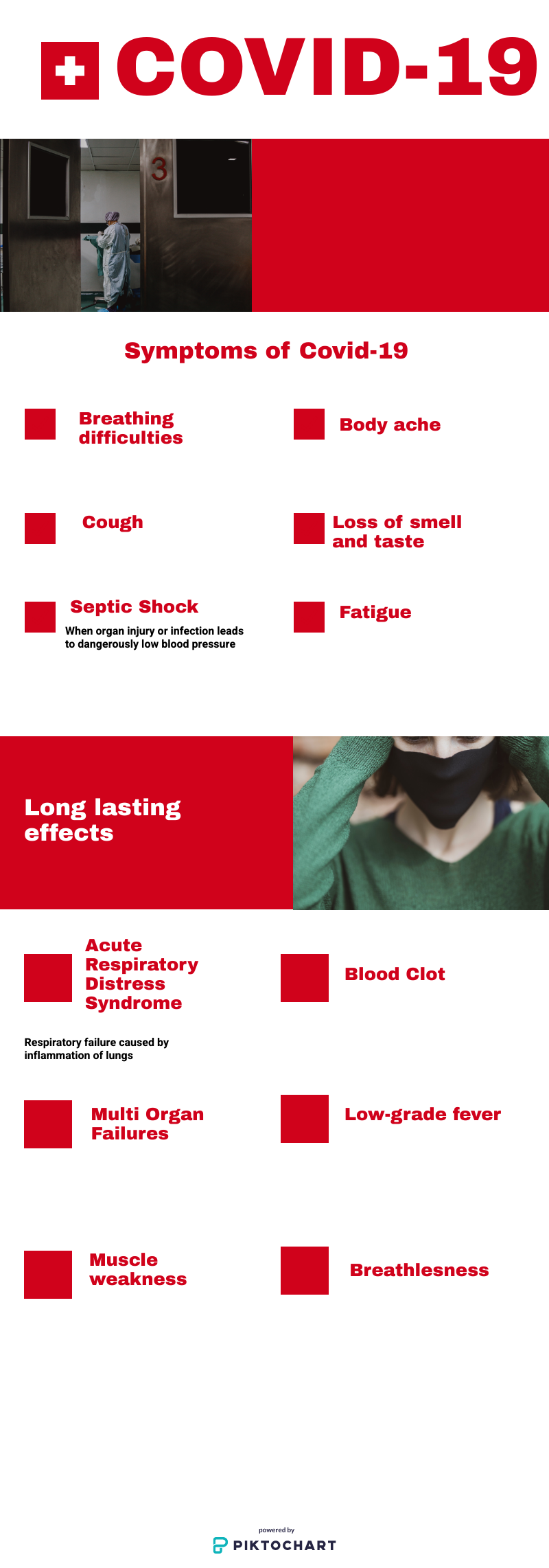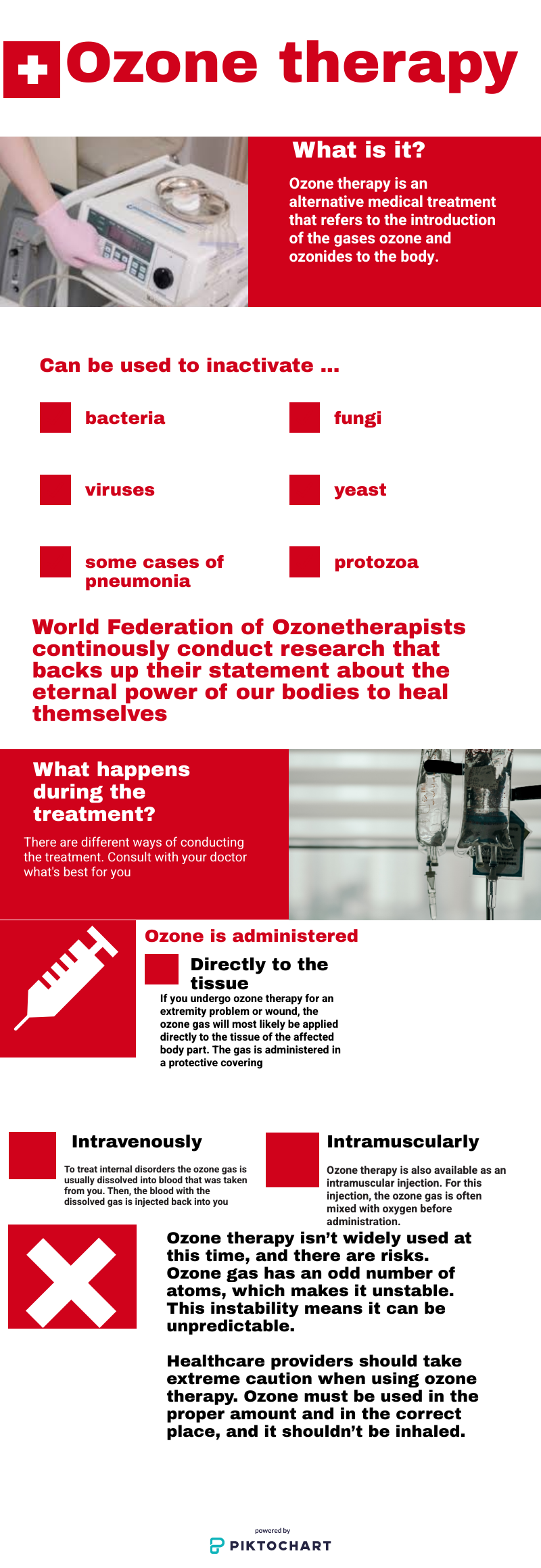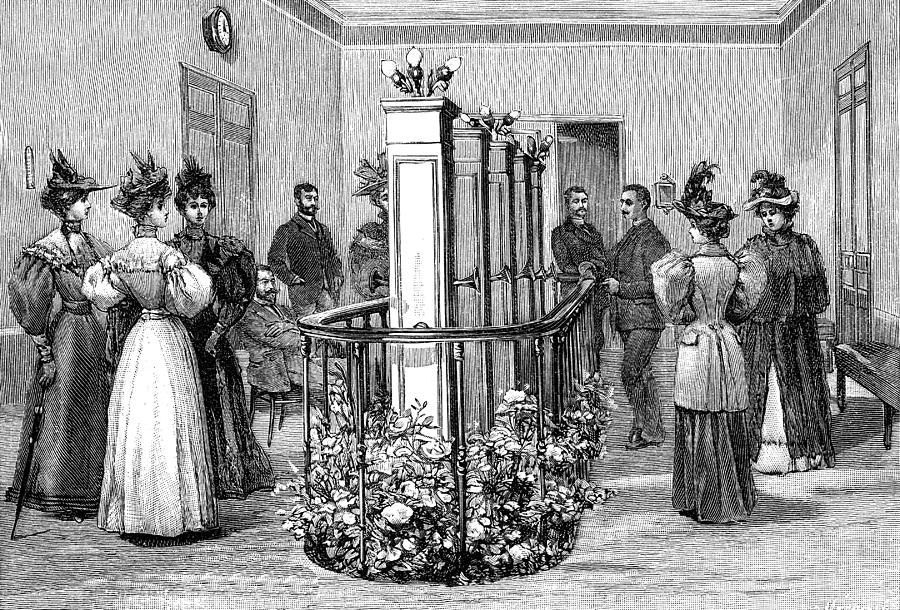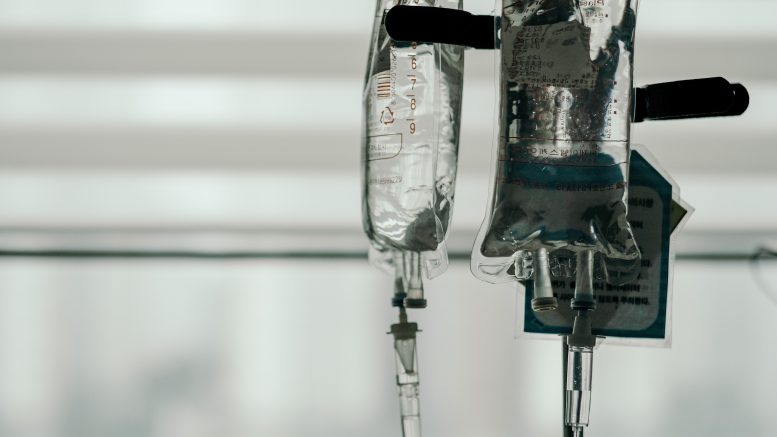The COVID-19 pandemic has shook the world leaving humanity in desperate need of a cure since the adverse effect of the disease goes beyond health issues; destroying people’s livelihoods as well as world economies.
The scientific world has explored alternative methods to the ones offered in the UK and worldwide.
Immune stimulating treatment ozone therapy is gaining increased popularity.
COVID-19 is a contagious disease caused by acute respiratory syndrome SARS-CoV-2. It is spread by various means, mostly through bodily fluids like saliva.
These fluids can spread while the infected person breathes, sneezes, coughs and speaks.
Simply put, coronavirus is transmitted through direct contact. The measures of increased hygiene, social distancing and lockdowns were introduced all over the world.

Infographic by: Chinara Sadikhova for Voice of London | Photos in infographic by: @insungyoon from Unsplash.com

Infographic by: Chinara Sadikhova for Voice of London | Photos in infographic by: ‘Hayde’ hospital in St Petersbourg and @insungyoon from unsplash.com
People with breathing disorders may be good candidates for ozone therapy, though more research is needed. By increasing the oxygen levels in your blood, ozone therapy may help reduce the stress on your lungs.
Your lungs are responsible for supplying oxygen to your blood. Since ozone therapy was used several times against pneumonia, there was a suggestion to use this treatment against coronavirus.
“The growing number of deaths and the burden carried by health systems has created general distrust in the authorities,” says Dinara Ahmadova, doctor practicing ozonetherapy in Anti-Aging Center in Azerbaijan, “although it has been there for a long time.” She is also part of World Federation of Ozonotherapy (WFOT).
History of ozone therapy dates back to the 19th century when it was first used for disinfecting the medical rooms and sterilising the instruments.
Later, ozone was used to clean the water from viruses and bacteria. Ozone was tested at Queen Alexandra Military Hospital in London as a possible disinfectant for wounds during World War I which resulted in damage of the tissue.
Slowly, it has evolved into an immune stimulating treatment, basically what we have nowadays.

19th Century Ozone Therapy | Photo by: Collection Abecasis, science photo Library
“I have witnessed myself how much this treatment is disregarded in scientific community” Dinara continues “the respiratory diseases are treated with it but when someone attempts to use it against coronavirus, they are merely laughed at.”
In 2019, the Food and Drug Administration (FDA) stated that ozone is toxic and has no proven medical applications.
“I have clients who were doing ozonetherapy for many years. A lot of them are high profile. The unlucky ones who contracted the coronavirus in spite of being above 40 [hence in the risk group] had either been asymptomatic or gone through it like a mild flu. However, they don’t want to speak out about this since they are afraid of public ostracised.”
Dr. Stefan Tiron, President of WFOT, introduced ozone therapy in intensive care units, as an adjuvant treatment of current infection with SARS-CoV-2 between Romanian Scientific Society of Oxygen Ozone Therapy and the Romanian Society of Anaesthesia and Intensive Care for free. He plans to work continuously on enlightenment of people about the healing effect of the treatment.
While in the UK, ozone therapy cannot be used as a treatment against COVID-19, nevertheless, ozone therapy can be done by healthy people as a preventative and restorative measure.
Clinics in London offering ozone therapy:
Re:treat Medispa London
126 Upper Richmond Road, Putney, London SW15 2SP UK
020 8788 5619
info@retreatlondon.co.uk
020 3733 6664
info@ivboost.uk
48 Wimpole Street
London, W1G 8SF
Knightsbridge
53 Beauchamp Place,London, SW3 1NY
020 7225 1660
020 7225 1663
info@zenhealthcare.co.uk
Words: Chinara Sadikhova | Subbing: Dina Nazari

